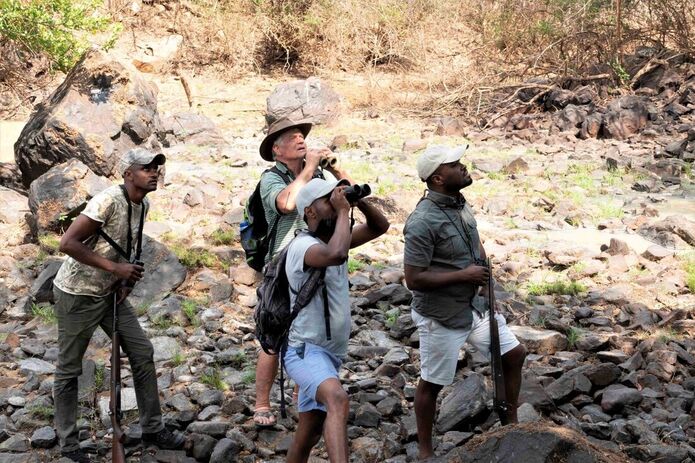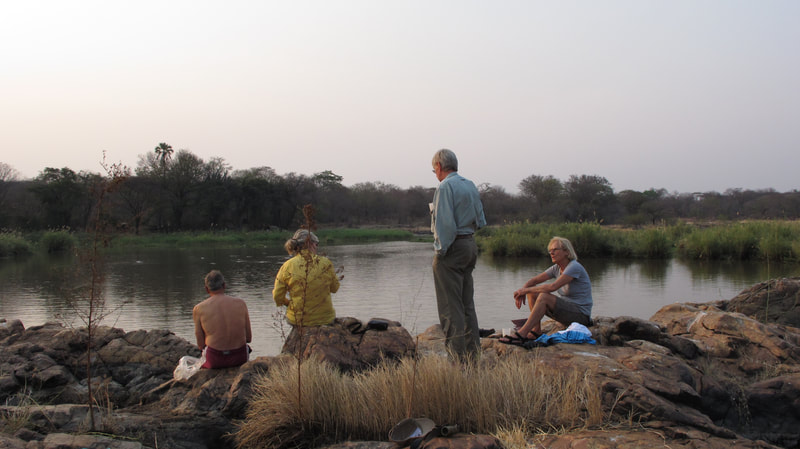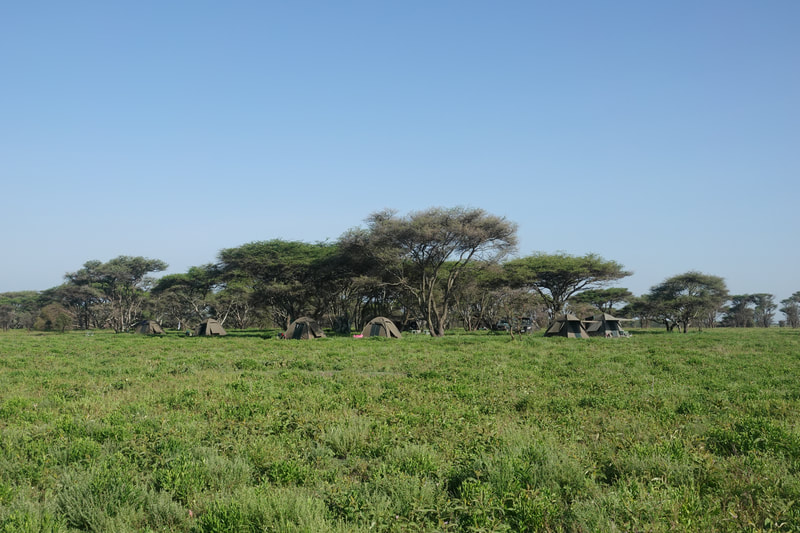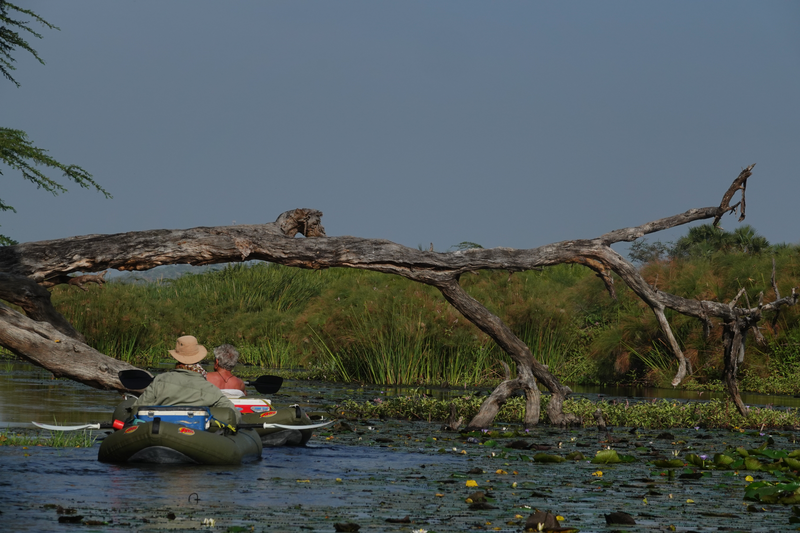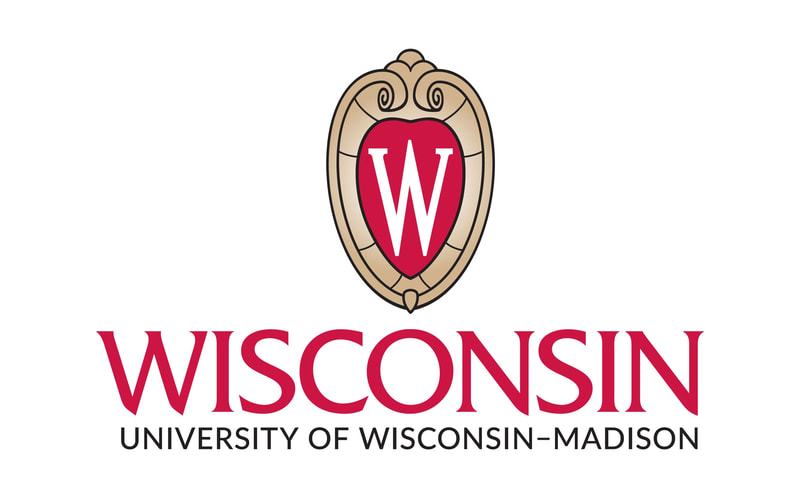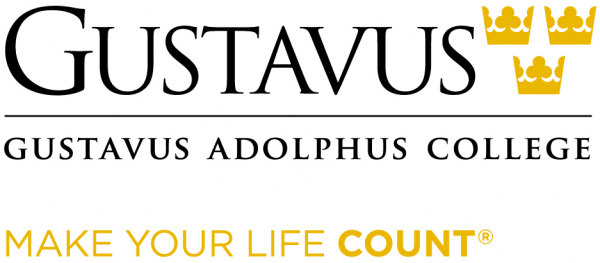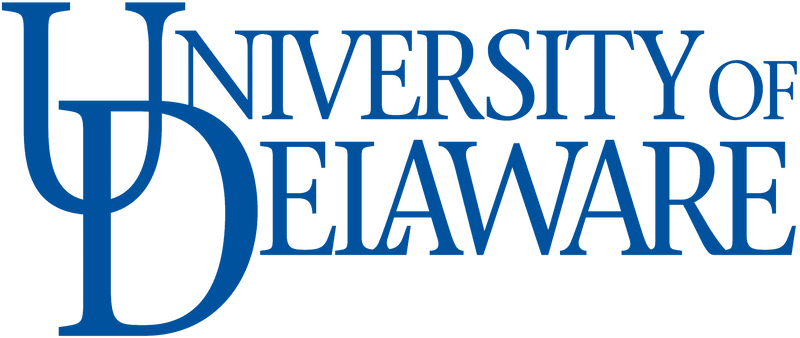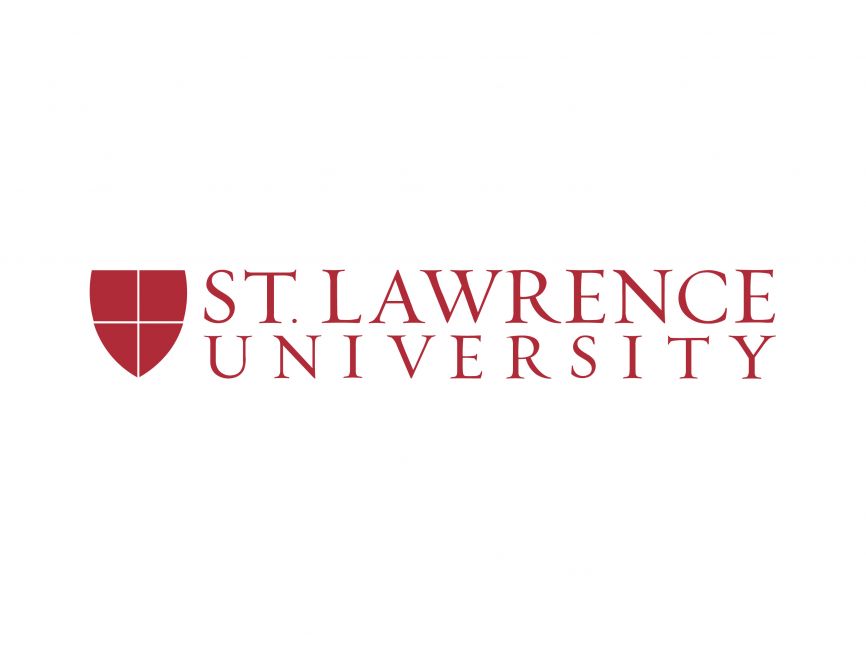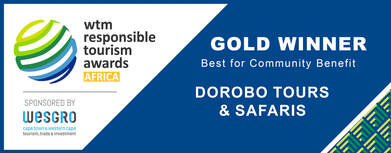Journeying Through Time
Roots of Our Journey
Harmonizing Nature and Humanity
Since its inception in 1982, Dorobo Safaris has been at the forefront of crafting educational-based journeys in northern Tanzania. Founded by three brothers, Mike, Thad, and Daudi, who were captivated by Tanzania's people, wildlife, and landscapes during their upbringing, the roots of Dorobo Tours & Safaris trace back to the early 80s. As a humble, family-run endeavor, we embarked on a mission to introduce people to the splendors of Tanzania, offering an opportunity to immerse themselves in the country's richness.
From its very inception, Dorobo Safaris has embraced a profound travel philosophy: the interconnectedness of our natural environments, wilderness, wildlife, and people, both locally and globally. Fueled by a strong foundation in natural sciences and an in-depth understanding of the cultures of East Africa, Dorobo has meticulously designed wilderness travel experiences for individuals and groups, imparting captivating and stimulating educational encounters.
Our journey is one of bridging the gap between humanity and nature, fostering a deep appreciation for the intricate tapestry that binds us to the wild. With decades of experience, we stand as a beacon of transformative educational exploration, paving the way for meaningful connections, cultural understanding, and unforgettable experiences in Tanzania.
From its very inception, Dorobo Safaris has embraced a profound travel philosophy: the interconnectedness of our natural environments, wilderness, wildlife, and people, both locally and globally. Fueled by a strong foundation in natural sciences and an in-depth understanding of the cultures of East Africa, Dorobo has meticulously designed wilderness travel experiences for individuals and groups, imparting captivating and stimulating educational encounters.
Our journey is one of bridging the gap between humanity and nature, fostering a deep appreciation for the intricate tapestry that binds us to the wild. With decades of experience, we stand as a beacon of transformative educational exploration, paving the way for meaningful connections, cultural understanding, and unforgettable experiences in Tanzania.
Promoting Community-based Conservation through Tourism
Seeing firsthand the changes, often negative, being placed on natural resources by the pressures of a growing and changing human population, Dorobo began to focus energy and resources into establishing partnerships and linkages with local communities whereby wildlife/ wilderness for the first time became an economic option for them. From these agreements, we have nurtured long-term mutually beneficial relationships with many communities, from the Swahili coastal people to the Maasai (pastoralists), Hadzabe (hunter gatherers), and Iraqw (mixed farmers). We are thus able to offer privileged opportunities to learn about traditional cultures that dance to different tunes and to partake of a rich synergy of traditional and scientific knowledge as we interact with these traditional cultures that are still intimately connected to the earth.
Education brings a brighter tomorrow
In addition to traditional livelihoods in the rural setting, urban Tanzania also has much to offer. Dorobo and its non-profit organization have been involved in projects such as organic farming, urbanization as it changes cultures, the issues of over-population and family planning, women’s rights, and health care. Through these connections, students can learn and engage in the issues faced by urban communities while providing positive impacts for those communities. Hand in hand is the possibility to get involved with service learning in the form of building schools and interactions with local education systems. Many of our programs work with local students to share and learn from each other in the form of projects and practical fieldwork.
Pioneering Ecotourism In Tanzania
By the mid-1990’s, despite these initial steps to reconcile conservation with community livelihood interests, those at Dorobo Safaris had become convinced that a broader and more holistic approach was needed. The core issue that had become apparent was that communities needed support to carry out land use planning, build their capacity for natural resource management, consider the underlying issue of population growth and address the constant struggles over resource rights and land tenure that villagers across Tanzania were facing. Dorobo Safaris felt a new community-based organization was needed to help local communities address these resource management and governance issues. For over a decade they had watched as ineffective conservation and development projects failed while millions of dollars were spent by international organizations. It was time to try a different tack.
Several Maasai activists who had worked with KIPOC, one of the first official Maasai NGO’s formed in the early 1990′s, were recruited. These committed individuals had roots in the communities and experience facilitating local development processes. In order to channel philanthropic funds, the Dorobo Fund, a 501 C3, was registered in the US and a locally implementing Trust, the Ujamaa Community Resource Team UCRT was born in Tanzania in 1997.
By the mid-1990’s, despite these initial steps to reconcile conservation with community livelihood interests, those at Dorobo Safaris had become convinced that a broader and more holistic approach was needed. The core issue that had become apparent was that communities needed support to carry out land use planning, build their capacity for natural resource management, consider the underlying issue of population growth and address the constant struggles over resource rights and land tenure that villagers across Tanzania were facing. Dorobo Safaris felt a new community-based organization was needed to help local communities address these resource management and governance issues. For over a decade they had watched as ineffective conservation and development projects failed while millions of dollars were spent by international organizations. It was time to try a different tack.
Several Maasai activists who had worked with KIPOC, one of the first official Maasai NGO’s formed in the early 1990′s, were recruited. These committed individuals had roots in the communities and experience facilitating local development processes. In order to channel philanthropic funds, the Dorobo Fund, a 501 C3, was registered in the US and a locally implementing Trust, the Ujamaa Community Resource Team UCRT was born in Tanzania in 1997.
Tanzania is famous for its savannah ecology that supports the largest diversity and density of mega-fauna on the planet. A combination of National Parks and conservation areas gives clients and students the chance to study this unique habitat and the complex interactions between all living and non-living aspects in the environment. These wilderness areas, however, do not sit in isolation and their conservation relies on complex interactions between land, people and wildlife. Conservation is a key point in many of our established programs where students can evaluate and look at various forms of protected area management such as National Parks, Game controlled areas and Wildlife Management Areas, and the complex underlying forces that influence them.
The uniqueness of Tanzania, with all of its history, wildlife and rich culture has led to our involvement with many educational field programs with all ages of people. The experiences we provide remain rich and exciting, allowing students the chance to learn and engage hands on with some of the many complex aspects of what Tanzania and East Africa have to offer. We have many examples from past students that show the experiences provided by our programs are more than just school work, they can be life changing.
The uniqueness of Tanzania, with all of its history, wildlife and rich culture has led to our involvement with many educational field programs with all ages of people. The experiences we provide remain rich and exciting, allowing students the chance to learn and engage hands on with some of the many complex aspects of what Tanzania and East Africa have to offer. We have many examples from past students that show the experiences provided by our programs are more than just school work, they can be life changing.
"It is quite the transition I will say. More of an unconscious transition than I would have imagined. I remember so many things, and yet I cannot explain what is happening inside of me, the changes. We lived the dream, we lived the fantasy… thank you for making it an adventure that will thrive in my soul for the rest of my life!"
Lily Clarke, Lewis & Clark College
Tailored Student Programs for Discovery
We also host various student groups ranging from high school students to university students. The programs are tailored to offer the students with a unique experience tailored to the community's needs, in the past the activities have included building a classroom, or a clinic. The students are evaluated based on their participation and finish off their time with a safari that can go up to 14 days, providing them with the ultimate Tanzanian wilderness experience.
We also host various student groups ranging from high school students to university students. The programs are tailored to offer the students with a unique experience tailored to the community's needs, in the past the activities have included building a classroom, or a clinic. The students are evaluated based on their participation and finish off their time with a safari that can go up to 14 days, providing them with the ultimate Tanzanian wilderness experience.
University Groups Including:
Awards
2023 Top 10% of Businesses on TripAdvisor.
2021 Certificate of Excellence from TripAdvisor.
2020 Responsible Tourism Award from the Responsible Tourism Awards Africa.
2019 Gold Award for Community Benefit from the World Travel & Tourism Council's (WTTC) Tourism for Tomorrow Awards.
2021 Certificate of Excellence from TripAdvisor.
2020 Responsible Tourism Award from the Responsible Tourism Awards Africa.
2019 Gold Award for Community Benefit from the World Travel & Tourism Council's (WTTC) Tourism for Tomorrow Awards.
“Our winners have an ethos that extend beyond the commercial – linking thriving business with the well being of local people and the longevity of their environments. They want to make profits with principles, communicate bottom lines that balance people, planet and profit, and won’t undermine sustainability in the pursuit of superior product quality. They are resilient, determined, humanizing advocates for their destinations. They provide hope and inspiration for the future of tourism in Africa.”
-
Gold Best for Community Benefit 2019
"Dorobo operates small light-weight mobile camps and safari vehicles in Northern Tanzania. Its greatest achievement has been promoting cultural dignity and supporting land security for vulnerable communities. Dorobo has assisted community partners to secure 23,500 hectares of their land for traditional hunting and gathering in the Yaeda Valley. Along the Maasai Steppe, over 27,000 hectares of grassland is being sustainably managed by the local communities for livestock and wildlife grazing. With legal certificates to the land and transparent tourism agreements, communities earn revenue for protecting this vital area against agricultural encroachment, permanent settlement, and charcoal production.
Fourteen tourism agreements with local villages benefit in the order of 55,000 local people. The business works directly with local village governments who represent the greater community. Contracts span five years and follow local laws and customs. A payment structure and a guaranteed annual income are agreed upon, enabling communities to budget efficiently each year. Communities members have access to periodic reports of revenue from tourism that has been disbursed and can hold local leadership accountable for the management and use thereof. Further, in 2018, Dorobo Safaris employed community members for 1430 days of work hosting clients in community areas – this was in addition to locals employed in full-time positions."
- WTM responsible tourism awards
Fourteen tourism agreements with local villages benefit in the order of 55,000 local people. The business works directly with local village governments who represent the greater community. Contracts span five years and follow local laws and customs. A payment structure and a guaranteed annual income are agreed upon, enabling communities to budget efficiently each year. Communities members have access to periodic reports of revenue from tourism that has been disbursed and can hold local leadership accountable for the management and use thereof. Further, in 2018, Dorobo Safaris employed community members for 1430 days of work hosting clients in community areas – this was in addition to locals employed in full-time positions."
- WTM responsible tourism awards
41 Years of Dorobo Safaris: Connecting People, Wildlife, and Education in the Heart of Tanzania's Natural Wonders
|
Contact Us
Arusha Offices (+255) 683 893 722 Headquarters Plot 2534, Oloresho, Olasiti, Arusha, Tanzania. |
© COPYRIGHT 2024 DOROBO TOURS & SAFARIS
|

